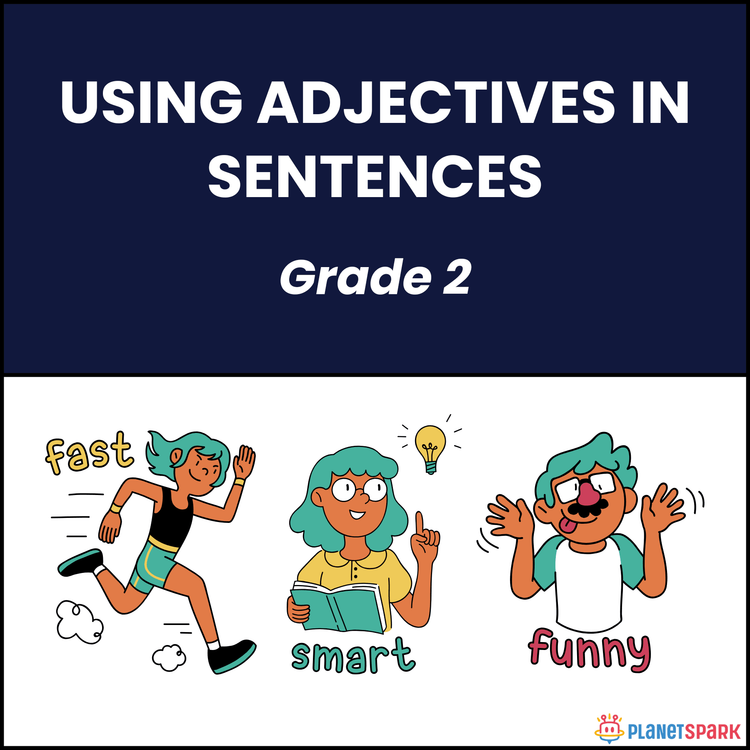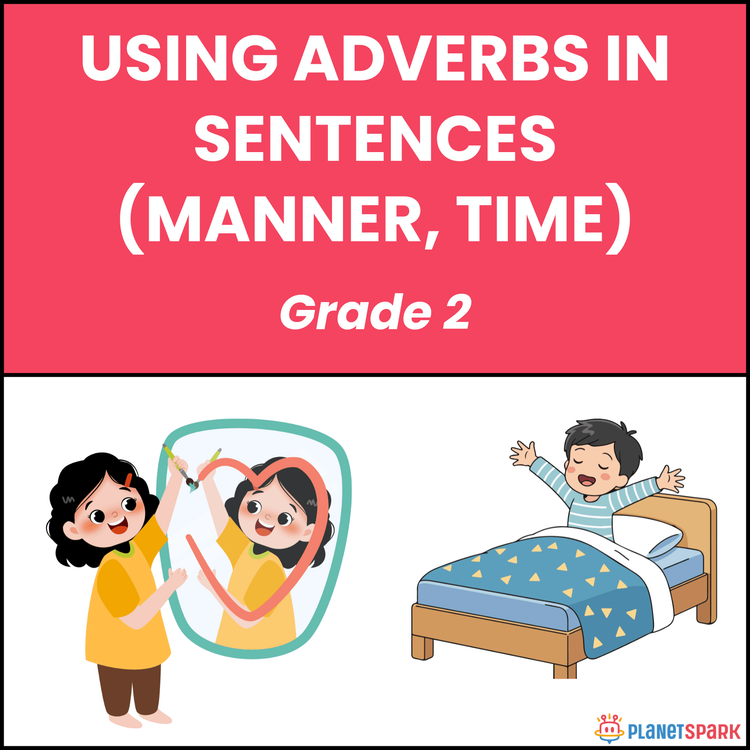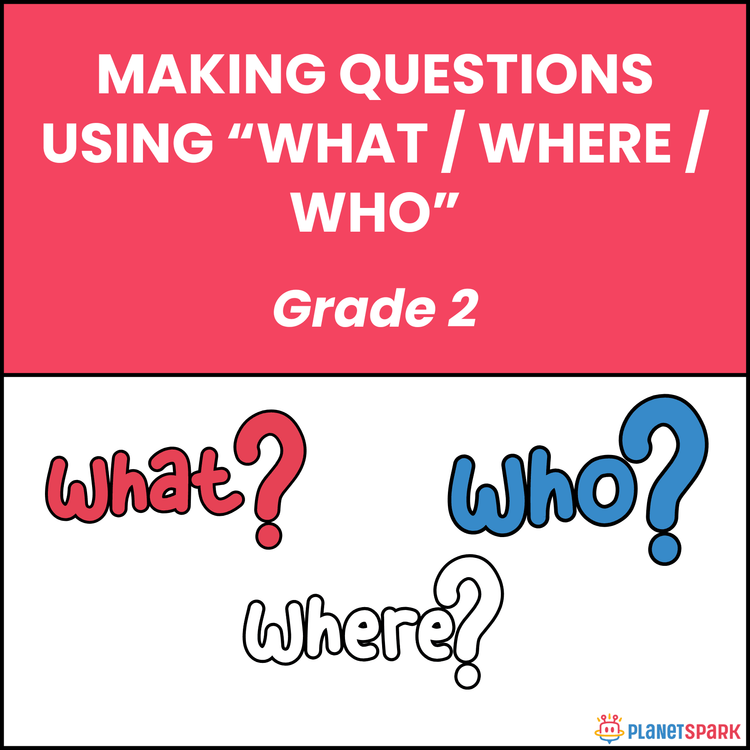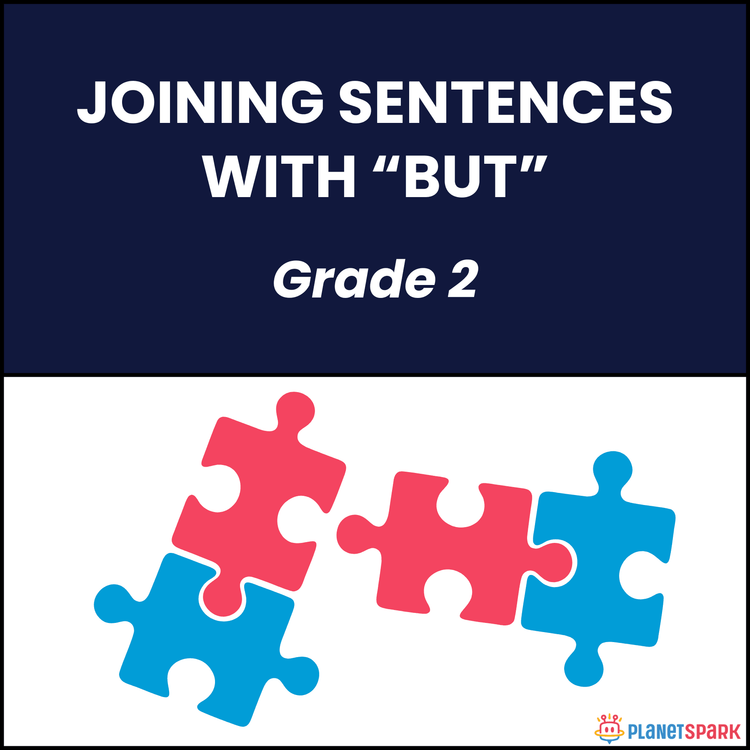Class 2 Grammar Practice Sheet on Homophones
Class 2EnglishEnglish GrammarFree DownloadPDF
Tanishka SharmaVisit Profile
I’m a passionate and fun-loving educator with 5 years of teaching experience, including the last 2 years at PlanetSpark. Along with my teaching journey, I also bring 2 years of corporate experience, which helps me connect practical communication skills with real-world applications. I love helping students build confidence, improve their communication, and grow into their best selves.
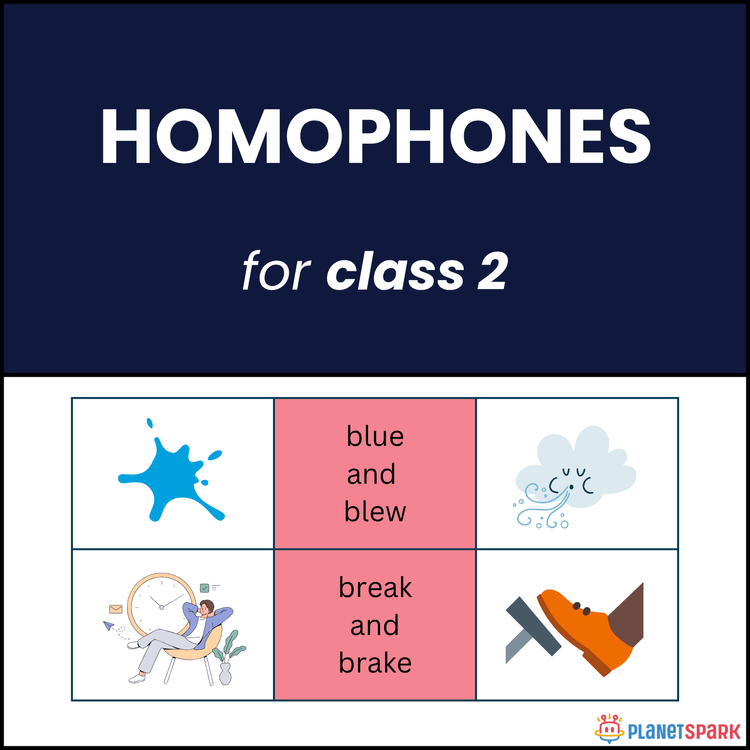

Class 2 Grammar Practice Sheet on Homophones
Class 2EnglishEnglish GrammarFree DownloadPDF
Tanishka SharmaVisit Profile
I’m a passionate and fun-loving educator with 5 years of teaching experience, including the last 2 years at PlanetSpark. Along with my teaching journey, I also bring 2 years of corporate experience, which helps me connect practical communication skills with real-world applications. I love helping students build confidence, improve their communication, and grow into their best selves.
Sounds the Same! Homophones Practice for Class 2
This fun and colorful worksheet helps Class 2 learners master homophones — words that sound the same but have different meanings and spellings. From matching to sentence writing, learners build confidence in word recognition and vocabulary usage.
Why Homophones Matter in Class 2?
This worksheet helps learners:
1. Identify common homophones used in daily speech and stories.
2. Understand how context changes meaning, even when words sound the same.
3. Improve spelling, word choice, and sentence clarity.
What’s Inside This Worksheet?
This worksheet includes five engaging activities:
🧠 Exercise 1 – Match the Homophones
Students match words like *see* and *sea*, *knight* and *night*, *flour* and *flower*.
✏️ Exercise 2 – Choose the Right Word
Learners choose the correct homophone from MCQ options based on sentence context. Example: “The boy is strong.” → *weak*.
🧩 Exercise 3 – Find & Write Homophone Pairs
From a word box, learners extract real homophone pairs such as *bare–bear*, *knight–night*, *plane–plain*.
📝 Exercise 4 – Correct the Homophone
Students rewrite sentences with the incorrect homophone fixed. Example: “I no the answer.” → “I **know** the answer.”.
✍️ Exercise 5 – Write with Homophones
Learners write original sentences using homophone pairs like *sun–son*, *mail–male*, and *flower–flour*.
✅ Answer Key (For Parents & Educators)
Exercise 1 – Matching
1. see – h. sea
2. flower – d. flour
3. blew – e. blue
4. mail – a. male
5. one – j. won
6. knight – c. night
7. hear – g. there
8. pair – i. pear
9. whole – f. hole
10. their – b. hair
Exercise 2 – MCQs
1. a. pear
2. c. blew
3. a. see
4. b. night
5. c. flour
6. b. won
7. b. write
8. a. mail
Exercise 3 – Valid Homophone Pairs
sun – son
pair – pear
blue – blew
hair – hare
one – won
night – knight
plane – plain
hole – whole
bear – bare
flower – flour
Exercise 4 – Rewritten Sentences
1. I **know** the answer to that question.
2. **They’re** going to the zoo tomorrow.
3. I saw a **hare** in the forest.
4. The **knight** was very brave.
5. I ate the **whole** cake.
6. The **sea** is very blue today.
7. She **read** the storybook.
8. I need to **buy** a new **pair** of shoes.
9. He **won** a prize at the fair.
10. The **flower** smells lovely.
Exercise 5 – Sample Sentences
1. **I wore a new pair of shoes.** / **I ate a juicy pear.**
2. **The sky is blue today.** / **He blew out the candles.**
3. **The sun is shining.** / **Her son is playing.**
4. **I bought a flower.** / **She used flour to bake.**
5. **Check the mail.** / **The male puppy is brown.**
Make language fun with homophones! Practice word sound smarts with this colorful worksheet that strengthens vocabulary and listening too!
🔖Book a free trial!
Frequently Asked Questions
Homophones are words that sound the same but have different meanings and spellings. This worksheet helps learners identify, use, and correct homophones through matching, MCQs, and writing.
Yes! Learners improve spelling accuracy and sound recognition by comparing word pairs in real contexts.
Absolutely — it uses familiar words and images designed for 6–8 year olds to grasp the concept of homophones easily.
